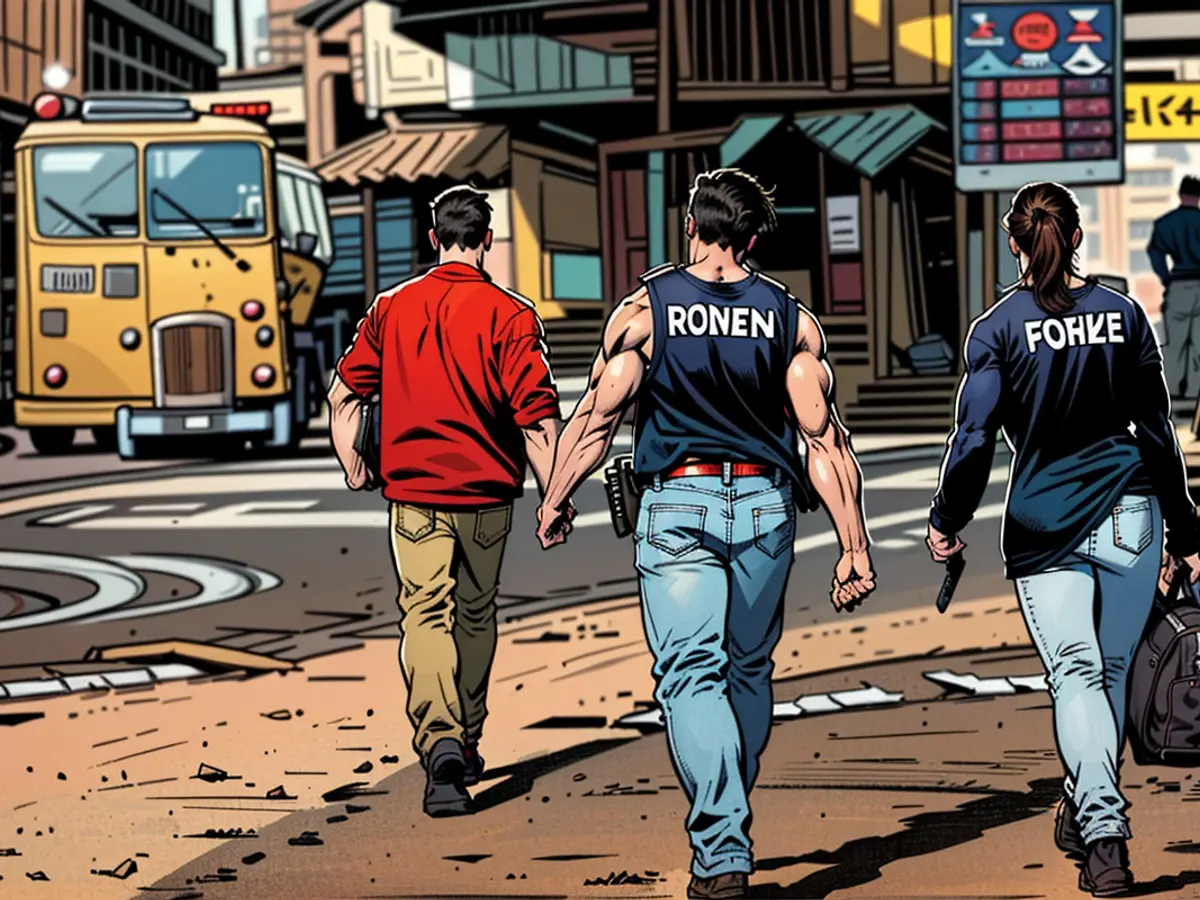The EU advocates for unnecessary inspections of knives
Following the violent knife attack in Solingen that left three individuals dead, the topic of fortifying gun laws and enhancing the powers of the security authorities has resurfaced. The Union, for instance, is pushing for comprehensive control methods, including random knife searches for the general public and a shift in refugee policy. Meanwhile, the SPD is questioning Justice Minister Buschmann's approach.
The alleged Islamist-inspired attack has sparked debates about stricter gun control and migration policies. The Union has advocated for strengthening authorities to conduct random knife searches and suggested turning the tide on refugee policy, while Federal Interior Minister Nancy Faeser has announced a firm stance against Islamist extremism.
CSU leader Markus Söder identified flaws in the security authorities' capabilities. "We lack the tools to manage violent scenarios and situations," he claimed in ARD. "You're checked while driving a car, without any cause. Not in pedestrian zones," Söder further stated. He supports expanding the security authorities' scope of action to better respond to threats.
Federal President Frank-Walter Steinmeier also advocated for increased power for the security authorities. He suggested augmenting personnel for them and expanding the Federal Criminal Office's power in the face of terrorist threats.
Buschmann takes a softer stance on gun laws
SPD parliamentary deputy Dirk Wiese has proposed measures to bolster the authorities' capabilities in the aftermath of the attack. This might include the storage of IP addresses, the use of facial recognition, and the creation of a new Federal Police Act to facilitate surveillance in public spaces.
According to Wiese, however, Justice Minister Marco Buschmann has been obstructing the implementation of such measures. "Buschmann's political views often render the security authorities virtually blind in the digital sphere," Wiese argued. "We can't rely on tips from friendly foreign services," he emphasized.
Buschmann also expressed reservations concerning the Interior Ministry's plans to expand knife bans. Minister Nancy Faeser has announced plans to ban new types of knives, create more weapon and knife ban zones, and grant police more control options. Buschmann, who was initially opposed to these suggestions, noted, "In light of the Solingen attack, all topics must be considered: The gun law is not taboo."
Executive Vice Chancellor Robert Habeck also advocated for tighter gun laws. "More weapon ban zones and stricter gun regulations are required," he stated. "No individual should carry stabbing or cutting weapons in public spaces in Germany. We're not living in the Middle Ages."
Reul: Improve deportation
For a policy shift, NRW Interior Minister Herbert Reul called instead for enhanced immigration regulations. "We can't accommodate everyone who wants to join us. Clear immigration guidelines and a limit are essential. We need to address the issue at Europe's borders and bolster measures at our own," Reul said in "Rheinische Post" interview.
He went on to say, "Expelling individuals must be done more swiftly and smoothly. However, anyone who views deportation as a solution is mistaken. If NRW continues to receive as many new refugees each month as we deport within a year, our efforts are ineffective." He also pointed out that the promised deportation wave from the federal government has yet to materialize. Instead, the immigration dilemma necessitates being addressed. On Monday morning, Federal Chancellor Olaf Scholz and North Rhine-Westphalia's Minister President Hendrik Wüst are expected to visit Solingen.
The controversy over gun laws and migration policies continues after the Solingen knife attack, with SPD parliamentary deputy Dirk Wiese accusing Justice Minister Marco Buschmann of hindering security authority enhancements. Buschmann, however, has softened his stance on gun laws, acknowledging that all topics should be considered in response to the attack.








